
Heatwaves: what mortality rates and what are the challenges for MSF?
Aina Roca Barceló, Lana Whittaker & Kévin Jean
Dr Aina Roca Barceló - Climate Adaptation Support Specialist at MSF Humanitarian Action for Climate and the Environment (HACE); hosted in MSF-UK.
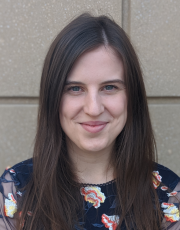
Lana Whittaker, Lecturer in Climate Change and Health and Director of Research at Urban SHADE (Strengthening Health Access and Delivery in Extreme weather events in urban areas) at the Liverpool School of Tropical Medicine

Kévin Jean, epidemiologist, Junior Professor of Health and Global Change at ENS-PSL, specialist in the health assessment of energy transition scenarios.
On 6 June 2024, MSF France's Green Team and the Crash team welcomed Lana Whittaker, Kévin Jean and Aina Roca Barceló for a conference on heatwaves.
You can find all the speaker's presentations here: PPT presentation_0.pdf
Heat waves are among the most visible manifestations of climate change. According to the scientific network World Weather Attribution, the extreme temperatures recorded since last March in the Sahel, the Middle East and Asia (Thailand and the Philippines in particular) would not have been possible in the pre-industrial era. As the atmosphere warms, heat waves are becoming more frequent and more intense. They represent a major public health problem, of which we became aware in France in 2003. At that time, 15,000 people died as a result of the heatwave - half from pathologies directly linked to the heat, the other half from the decompensation of chronic illnesses. Since then, the adoption of individual, collective and structural measures within the framework of the “Heatwave Plan” has enabled us to drastically reduce the excess mortality linked to these phenomena.
What is the situation in the various regions of Africa, the Middle East, Asia and Latin America where MSF operates? What is the frequency and intensity of heat waves? Is their impact on health comparable to that observed in wealthy countries with continental or temperate climates? What responses have populations and authorities deployed? Who are the most vulnerable groups? And how is MSF approaching this new phenomenon at operational level?
These are the questions we tackled at a conference co-organized by MSF France's Green Team and Crash, with Cyril Bousquet, ex-MSF who now works alongside Extinction Rébellion. We were delighted to welcome:
Lana Whittaker, Lecturer in Climate Change and Health and Director of Research at Urban SHADE (Strengthening Health Access and Delivery in Extreme weather events in urban areas) at the Liverpool School of Tropical Medicine.
Kévin Jean, Epidemiologist, Junior Professor of Health and Global Change at ENS-PSL, specialist in the health assessment of energy transition scenarios.
Aina Roca Barceló, Specialist in climate adaptation support at MSF Humanitarian Action for Climate and the Environment (HACE / MSF-UK).

To cite this content :
Aina Roca Barceló, Lana Whittaker, Kévin Jean, “Heatwaves: what mortality rates and what are the challenges for MSF?”, 6 juin 2024, URL : https://msf-crash.org/en/conferences-debates/heatwaves-what-mortality-rates-and-what-are-challenges-msf
If you would like to comment on this article, you can find us on social media or contact us here:
ContributePast events
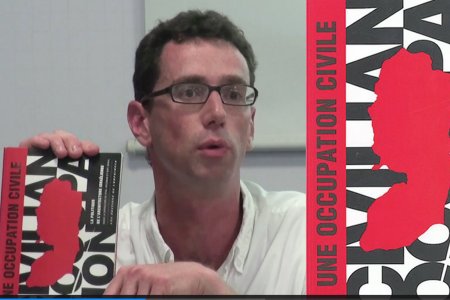 Conference
Conference
Eyal Weizman - Forensic Architecture at work
02/15/2016 - 07:00 PM 09:30 PM Michaël NeumanEyal Weizman, the founder of « Forensic Architecture » at the Goldsmiths College (University of London) came to present the project as well as a number of his works at a MSF - Crash conference organised at MSF.
 Conference
Conference
The polio eradication campaign put to test
02/04/2014 - 01:30 PM 07:30 PM Claire MagoneThe polio eradication campaign has indeniably and remarkably succeeded in tumbling down the number of polio cases worldwide. But difficulties currently faced by the Programme -pockets of social resistance in several countries, reinfection of some countries, outbreak of epidemics associated with strains of vaccine-derived polio viruses- indeed challenge one of the main assumptions underlying the objective of the eradication itself : the full compliance of an entire population to a public health program.
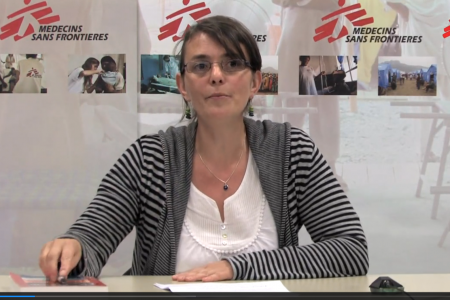 Conference
Conference
Living a Natural Disaster
11/03/2010 - 07:00 PM 09:00 PM Sandrine RevetPeople wandering through the rubble in Haiti, arms outstretched begging for help amid the floods in Pakistan: the media coverage of disasters invariably features helpless victims, overwhelmed by the disaster, waiting to be helped...
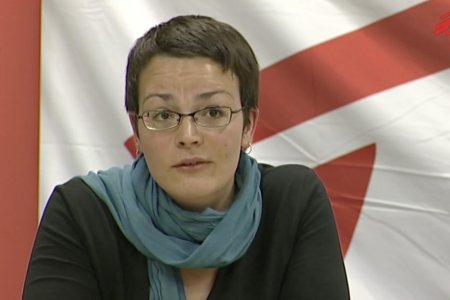 Lena Mucha
Conference
Lena Mucha
Conference
From their point of view
03/10/2009 - 07:00 PM 09:30 PM Caroline Abu-sadaThe reasons why we are accepted, tolerated or sometimes rejected in the contexts where we work are often obscure. Caroline Abu-Sada and her team of sociology student shed some light on these issues.
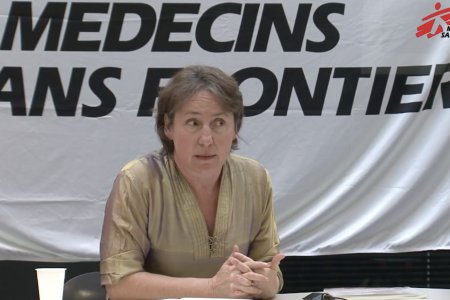 Jacob Zocherman
Conference
Jacob Zocherman
Conference
Grounds for divorce ? MSF and the international criminal court
04/08/2009 - 08:30 PM 10:30 PM Françoise Bouchet-SaulnierIn 1998 MSF decided to support the creation of the International Criminal Court. 10 years later MSF stated that it ‘would not cooperate and would not transmit any information to the ICC'. How can we explain this change of position?
Période
Newsletter
Subscribe to our newsletter to stay informed about our latest publications. Interested in a specific author or thematic? Subscribe to our email alerts.
